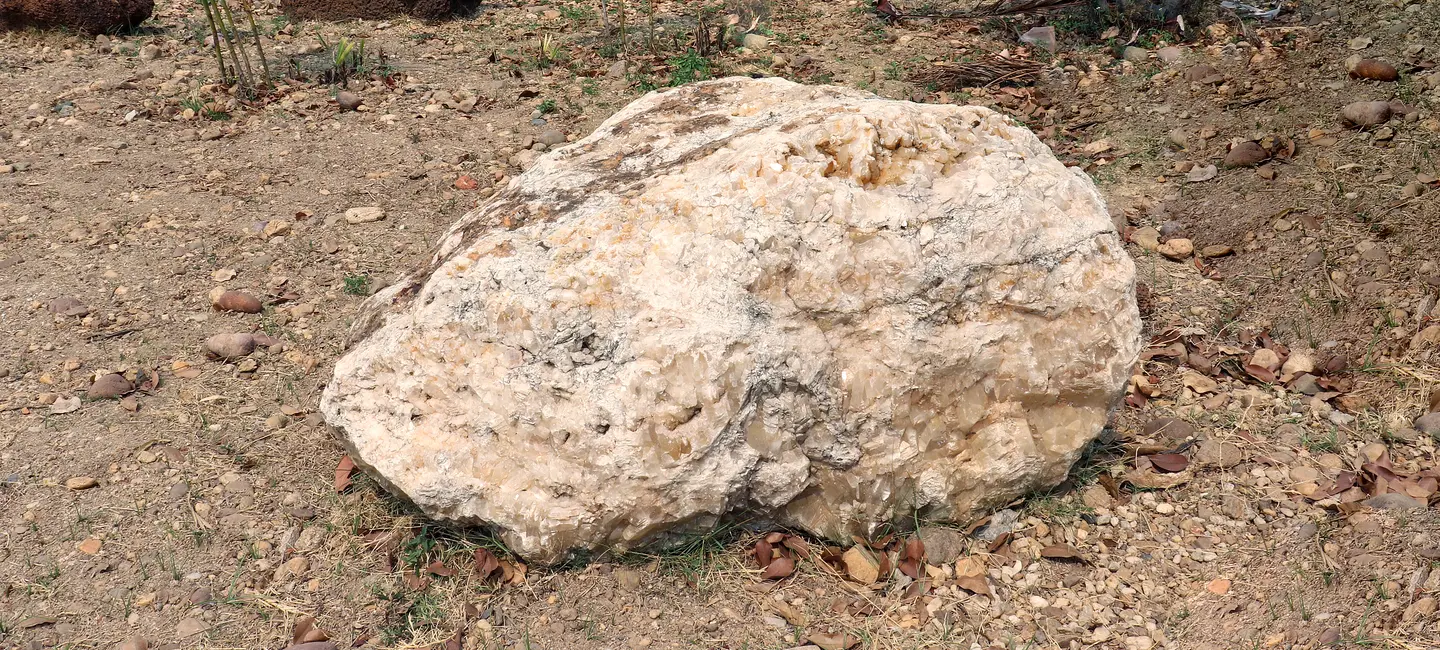
Dolomite is a type of limestone. It is rich in magnesium carbonate and calcium carbonate. It also contains several other minerals.
Dolomite is made of 60% calcium carbonate and 40% magnesium carbonate. However, it might also contain heavy metals, such as lead.
People use dolomite as a source of calcium and magnesium, but there is no good scientific evidence to support this use. It might also be unsafe.
Don't confuse dolomite with calcium or magnesium. These are not the same.
Is It Effective?
There is interest in using dolomite for a number of purposes, but there isn't enough reliable information to say whether it might be helpful.
Is it Safe?
When taken by mouth: Dolomite is possibly unsafe. Dolomite supplements might be contaminated with heavy metals like aluminum, arsenic, lead, mercury, and nickel. Choose a safer calcium or magnesium supplement instead.
Special Precautions & Warnings:
Pregnancy and breast-feeding: Dolomite is possibly unsafe to use while pregnant or breast-feeding because of the risk of heavy metal contamination. Avoid use.
Children: Dolomite is possibly unsafe for children when taken by mouth. Children are more sensitive than adults to contaminants such as lead. Avoid use.
Heart block: Don't use dolomite if you have heart block. Dolomite is a source of magnesium. Extra magnesium is not good for people with heart block.
Kidney disease: Extra magnesium and calcium can harm people with kidney disease. Dolomite is a source of both of these minerals. Avoid use if you have serious kidney problems.
Sarcoidosis: This condition increases the risk of absorbing too much calcium. Don't take dolomite if you have this condition.br/>
Antibiotics (Quinolone antibiotics)
Interaction Rating=Moderate Be cautious with this combination.
Dolomite contains minerals. In the gut, these minerals bind to antibiotics known as "quinolones." This can decrease how much quinolones that the body absorbs. To avoid this interaction, take these drugs at least 2 hours before or 4 to 6 hours after dolomite.
Antibiotics (Tetracycline antibiotics)
Interaction Rating=Moderate Be cautious with this combination.
Dolomite contains minerals. In the gut, these minerals bind to antibiotics known as "tetracyclines." This can decrease how much tetracyclines that the body absorbs. To avoid this interaction, take these drugs at least 2 hours before or 4 to 6 hours after dolomite.
Bisphosphonates
Interaction Rating=Moderate Be cautious with this combination.
Dolomite can decrease how much bisphosphate the body absorbs. Taking dolomite along with bisphosphates can decrease the effects of bisphosphate. To avoid this interaction, take bisphosphonates at least 30 minutes before dolomite or later in the day.
Levothyroxine (Synthroid, others)
Interaction Rating=Moderate Be cautious with this combination.
Dolomite can decrease how much levothyroxine the body absorbs. Taking dolomite along with levothyroxine might decrease the effects of levothyroxine.
Sotalol (Betapace)
Interaction Rating=Moderate Be cautious with this combination.
Dolomite contains calcium. Taking calcium with sotalol can decrease how much sotalol the body absorbs. This could decrease the effects of sotalol. Take dolomite at least two hours before or four hours after taking sotalol.
Water pills (Potassium-sparing diuretics)
Interaction Rating=Moderate Be cautious with this combination.
Dolomite contains magnesium. Some "water pills" can increase magnesium levels in the body. Taking some "water pills" along with dolomite might increase magnesium levels too much.
Water pills (Thiazide diuretics)
Interaction Rating=Major Do not take this combination.
Dolomite contains calcium. Some "water pills" increase the amount of calcium in the body. Taking large amounts of calcium with some "water pills" might increase calcium levels too much.
Boron: Taking boron and dolomite together can increase magnesium levels in the blood.
Calcium: Dolomite contains calcium. Taking calcium along with dolomite can increase calcium too much and cause constipation.
Magnesium: Dolomite contains magnesium. Taking magnesium along with dolomite can increase magnesium too much and cause diarrhea.
Vitamin D: Dolomite contains calcium. Vitamin D makes it easier for the body to absorb calcium. Taking vitamin D along with dolomite can increase the levels of calcium in the body.
There isn't enough reliable information to know what an appropriate dose of dolomite might be. Keep in mind that natural products are not always necessarily safe and dosages can be important. Be sure to follow relevant directions on product labels and consult a healthcare professional before using.
Calcaire Dolomitique, Dolomita, Dolomitic Limestone, Dolostone.
Information on this website is for informational use only and is not intended to replace professional medical advice, diagnosis, or treatment. While evidence-based, it is not guaranteed to be error-free and is not intended to meet any particular user’s needs or requirements or to cover all possible uses, safety concerns, interactions, outcomes, or adverse effects. Always check with your doctor or other medical professional before making healthcare decisions (including taking any medication) and do not delay or disregard seeking medical advice or treatment based on any information displayed on this website.
© TRC Healthcare 2024. All rights reserved. Use and/or distribution is permitted only pursuant to a valid license or other permission from TRC Healthcare.
